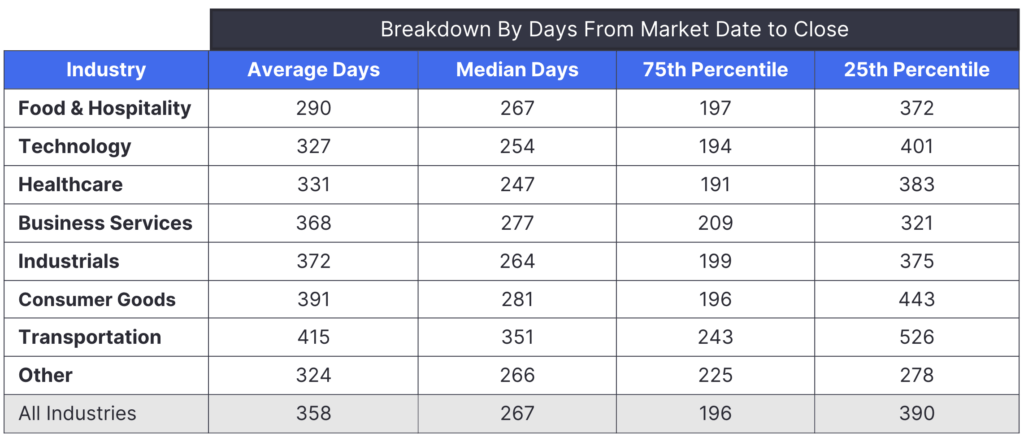
The Advisor Finder Report: Q4 2025
Welcome to the Q4 2025 issue of The Advisor Finder Report, a quarterly publication that surfaces the activity occurring on…
If you’re a business owner, there’s one thing we’re sure you subscribe to:
Every goal needs to be accompanied by a deadline.
Deadlines are the vehicle that turns goals & strategies into plans. They promote:
Planning for your exit should be no different.
A great exit outcome requires a great plan. And a great plan requires deadlines that map to each planning milestone.
Our advice: craft an exit timeline with the end in mind.
And start by establishing your ideal exit date.
Your ideal exit date is the date by which you want to sell your business. It may represent when you want to retire. Or it may represent when you ideally want to move on to your next, more promising opportunity.
Most importantly, it characterizes how you think about the opportunity cost of your time. And the opportunity cost of indecision.
Owners that have an ideal exit date & an associated exit timeline:
Business owners we speak with often overlook this vital, initial step. They haven’t spent the time to think critically about their ideal exit date. What are the implications of retiring 6 months – 3 years later? What is the cost of elongating this sale process?
Even if you are simply ‘exploring’ an exit to see if you can get the right price, having a firm date by which you hope to reach a firm decision will prevent you from drawing out the evaluation process.
– – –
A brief anecdote:
We ran an exercise with an owner a few weeks ago to help them establish their ideal exit date. They were looking to divest one of their divisions to invest in another.
In the process, we connected a few dots that the owner had overlooked:
Obviously, this isn’t perfect math. But it is directionally accurate.
Understanding their opportunity cost allowed the owner to cement their ideal exit date.
Cementing their ideal exit date allowed them to realize the relationship between speed and price in their process, and create a robust exit timeline. This, in turn, prompted them to hire an M&A Advisor to maximize both objectives.
The moral of the story: identifying your ideal buyer and valuation aren’t enough. Those need to coexist with an ideal exit date. Honing in on this date will benefit your process and psyche immensely.
Axial platform data suggests that selling a business takes an average of 358 days. This varies by industry and financial profile—see the breakdown below.

 Market Date: refers to the moment you start engaging in conversations with potential buyers.
Market Date: refers to the moment you start engaging in conversations with potential buyers.Below are the key milestones and events that occur in the process of selling a business, along with the suggested time frames relative to an ideal exit date. We’ve also included what each step entails and provided beneficial Axial resources for each.

We launched Exit Ready just over a year ago with the goal of educating exit-curious business owners to better prepare them for a future sale. If you’re interested in receiving this newsletter, please complete the form below.


